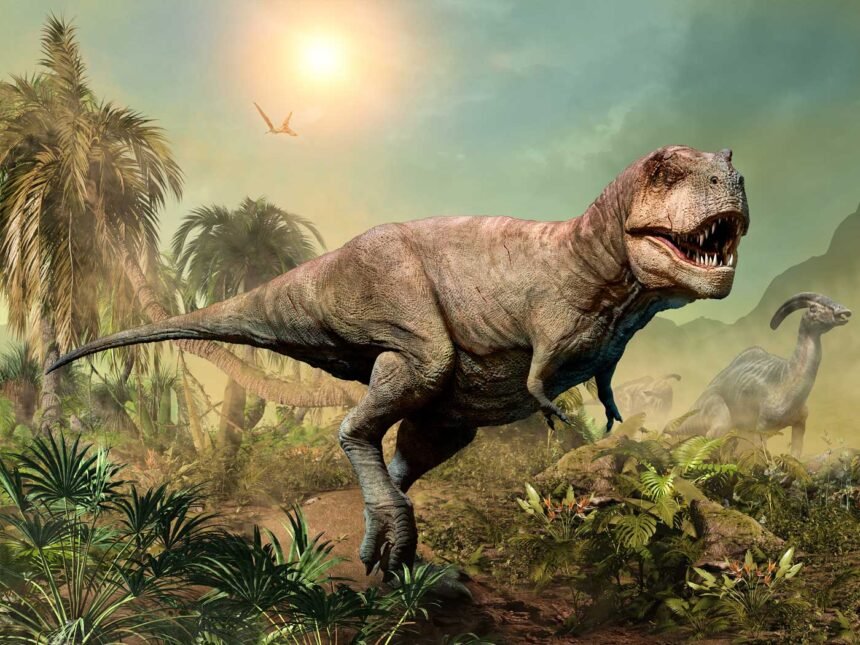Volcanic eruptions, according to a recent study, may have played a pivotal role in the extinction of dinosaurs on Earth. The research suggests that a series of volcanic events, characterized by massive lava flows, contributed significantly to the catastrophic environmental changes that led to the demise of these iconic creatures.
The study, conducted by a team of scientists, focused on the geological evidence from the time of the dinosaur extinction. Moreover, it revealed that extensive volcanic activity, releasing vast amounts of lava, occurred during the same period as the mass extinction event.
The volcanic eruptions, believed to have taken place around 66 million years ago, unleashed a cascade of environmental effects. The colossal release of gases, including carbon dioxide and sulfur dioxide, led to a dramatic increase in atmospheric temperatures and altered the composition of the Earth’s atmosphere.
These volcanic emissions, combined with the subsequent release of aerosols and ash, resulted in a phenomenon known as “volcanic winter.” Further, the cooling effect caused widespread darkness, disrupting photosynthesis and severely impacting the global climate.
More About Their Extinction
The environmental upheaval caused by the volcanic activity is thought to have played a crucial role in the extinction event that wiped out nearly 75% of Earth’s species, including the dinosaurs. The abrupt and drastic changes in temperature and environmental conditions created an inhospitable world for many forms of life.
While the impact of a massive asteroid or comet has long been considered a primary factor in the extinction of dinosaurs, this study underscores the significance of volcanic activity as a complementary and potentially major contributor to the catastrophic events of that era.
The findings challenge the conventional narrative and highlight the complex interplay of multiple factors that led to the dramatic changes in Earth’s ecosystems. Understanding the role of volcanic eruptions in conjunction with other extinction mechanisms provides a more comprehensive view of the intricate processes that shaped the planet’s history.
Over all, the study suggests that a series of volcanic eruptions, marked by extensive lava flows and environmental disruptions, may have played a vital role in the extinction of dinosaurs on Earth. Also, the findings emphasize the need for a nuanced understanding of the multiple factors contributing to mass extinction events and their profound impact on the planet’s biodiversity.
